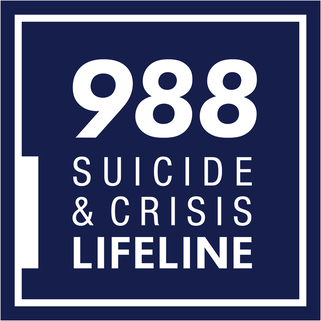|
By ABCS RCM
In the modern job market, working hours that are outside of the traditional 9-to-5 job schedule is common. This is especially true for people who work in food and transportation services as well as the healthcare industry. But, new research suggests that working 2nd or 3rd shift jobs may put people at a higher risk for developing mental health conditions like depression. It is well known that people have an internal circadian rhythm that is linked to the natural cycle of daylight. However, working outside of the normal sleep-wake cycle appears to alter the circadian rhythm. These varied schedules seem to create more disruptions in people’s lives. Researchers examined previous studies and over 28,000 participants who were considered shift workers. For the purposes of the study, shift work was characterized by employees who worked outside of the hours of 7:00 AM to 6:00 PM. According to results published in the American Journal of Public Health, any employee who works these hours, is at an elevated risk of developing (or having) a mental health condition. Working outside of the 7 AM to 6 PM window is especially dangerous for women, who have a greater risk of developing depressive-like symptoms when compared to men. The study found that shift workers were 28 percent more likely to experience mental health problems versus people with consistent weekday work schedules. When focusing on conditions like depression, 33 percent of workers with night/irregular work schedules were more likely to have this condition. Workers with certain types of mental health conditions, like depression, could go unnoticed by employers. For example, one type of depression that sometimes goes unnoticed is persistent depressive disorder or dysthymia. This is a chronic form of depression is sometimes known as a low-level or low-grade type of depression. The symptoms are often described by people as having a general mood where one always feels down. People may lose interest in life, feel hopeless, lack productivity and generally feeling empty. Other symptoms of dysthymia may include mood swings and restless sleep. Some data from the study may have suggested that these workers also had a higher chance of developing anxiety disorders. However, in this case, more research is needed. One possible theory for the correlation between shift work and the increase in mental health disorders is that the normal sleep-wake cycle (circadian rhythm) is disrupted. When this happens, people can feel moodier and more irritable. People’s brains are evolved to sleep during night hours in the absence of light. It is during this time that the brain processes and learns information from the day. The lack of daylight for these workers may turn the circadian rhythm upside down, because these individuals are forced to stay awake at night and attempt to sleep during daylight hours. Instances of social isolation can also increase due to the fact that these worker’s time-off does not match their family and friend’s work and life commitments. Overall, this disruption of their sleep cycle seems to increase irritability, nervousness and depressed feelings. One remedy for this is for workers to make time for physical exercise, being outside during daylight hours as well as making sure to spend time with family and friends. All of these behaviors may help improve a person’s mood and limit the social isolation that can exacerbate depression. The findings raise the question of which came first, the chicken or the egg? The research was not a controlled experiment designed to prove whether or how work schedules might directly impact mental health. It is possible that individuals with pre-existing mental health issues naturally gravitated to jobs that have irregular hours. This means that these people would have possessed pre-existing behavioral health conditions before they started working odd hours or inconsistent shifts. Whether working 2nd and 3rd raises the risk for mental health issues, or people with pre-existing conditions seem to end up working in these jobs, the outcome is the same. Both employers and employees should understand the increased mental health risk of working outside of the more traditional workday schedule. Society still has a lingering stigma about mental health, which limits some people from seeking treatment. However, individuals should realize that having a mental health condition is not a sign of weakness or a moral failing. This outdated notion and the chronic nature of many of these mental health conditions, make coping with the symptoms extremely challenging. A combination of talk therapy (psychotherapy) and medication is an effective approach for treating these conditions. For more information, individuals should contact an experienced mental health professional. For additional information about this topic, please contact Providers For Healthy Living. As a behavioral & mental health practice, they have been providing experienced behavioral health services in Central Ohio since 2011. Their direct phone number is 614-664-3595 or 419-605-9817.
0 Comments
Leave a Reply. |
|
Please DO NOT use this email address for medication refill requests or for emergency situations.
Click here for refill requests instead of using email: Medication Refill Request Form If you have a medical emergency, email is never the appropriate way to communicate your needs, and you should instead call 911 or go to the nearest ER. If you are having suicidal thoughts and need to speak to someone immediately, you can contact Suicide Prevention Hotline at the number (and link) below. [email protected]
Communications via email are not secure. Although it is unlikely, there is a possibility that the information you include in an email can be intercepted and read by other parties besides the person to whom it is addressed. |
|
2024 Providers for Healthy Living | All Rights Reserved
|

